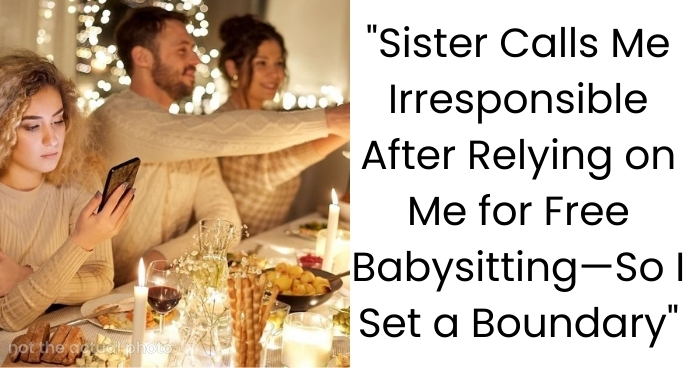‘AITA for refusing to babysit my sister’s kids after she publicly called me ‘irresponsible’ in front of our whole family?’
OP (26F) has been temporarily babysitting for her older sister Emma (34F), a single mom of three. OP is fond of her niece and nephews but she is feeling the strain of Emma’s dependence on her because Emma knows that OP will cancel all her plans, at a moment’s notice, to babysit every time.
When she was then asked to watch the kids for one night and said no because it was for a close friend’s birthday and she’d booked the birthday months in advance, that was the breaking point. Emma apparently accepted it then, but at a family get-together the next day, she shamed OP publicly — calling her ‘irresponsible’ and saying she is ‘living a carefree and selfish life’ while Emma ‘sacrifices everything’ for her kids. Feeling humiliated and really hurt, OP decided that unless Emma has a talk with her about her behavior and apologizes, she doesn’t want to babysit her anymore.
Emma didn’t take this well, accused OP of abandoning her, and then their mother did too, telling OP to consider that Emma is a single mom. Even though OP feels taken for granted, now she wonders if she was wrong for having a hard line boundary.
Read for more info Reddit
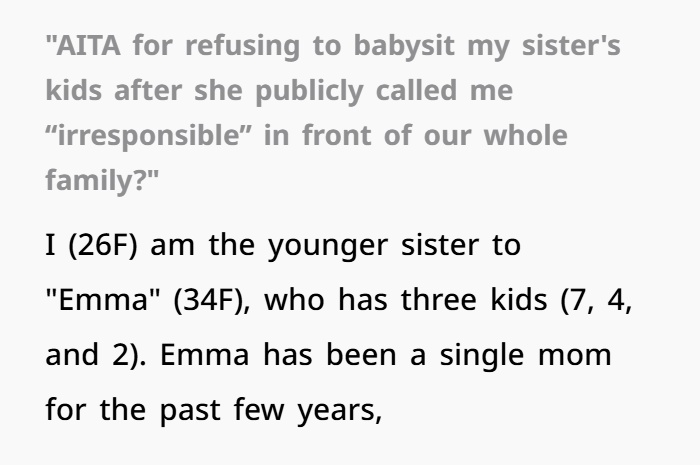
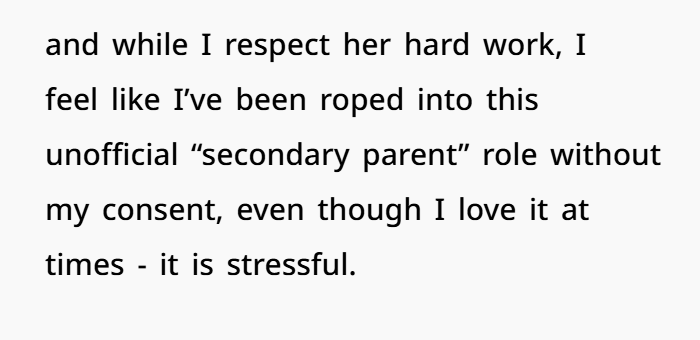
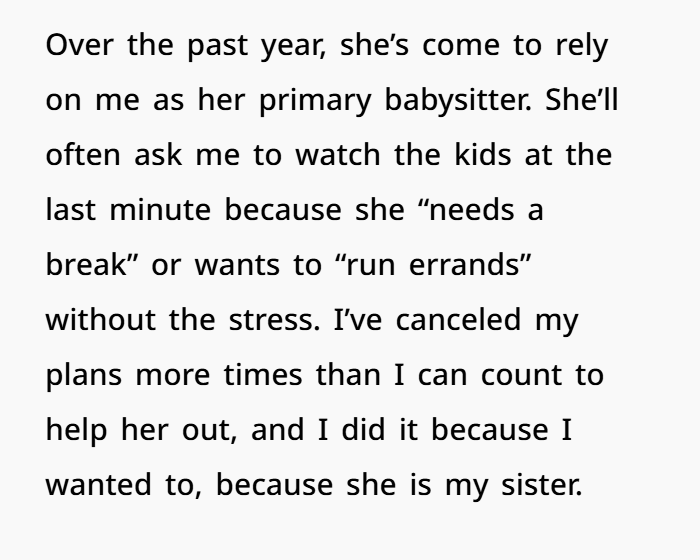
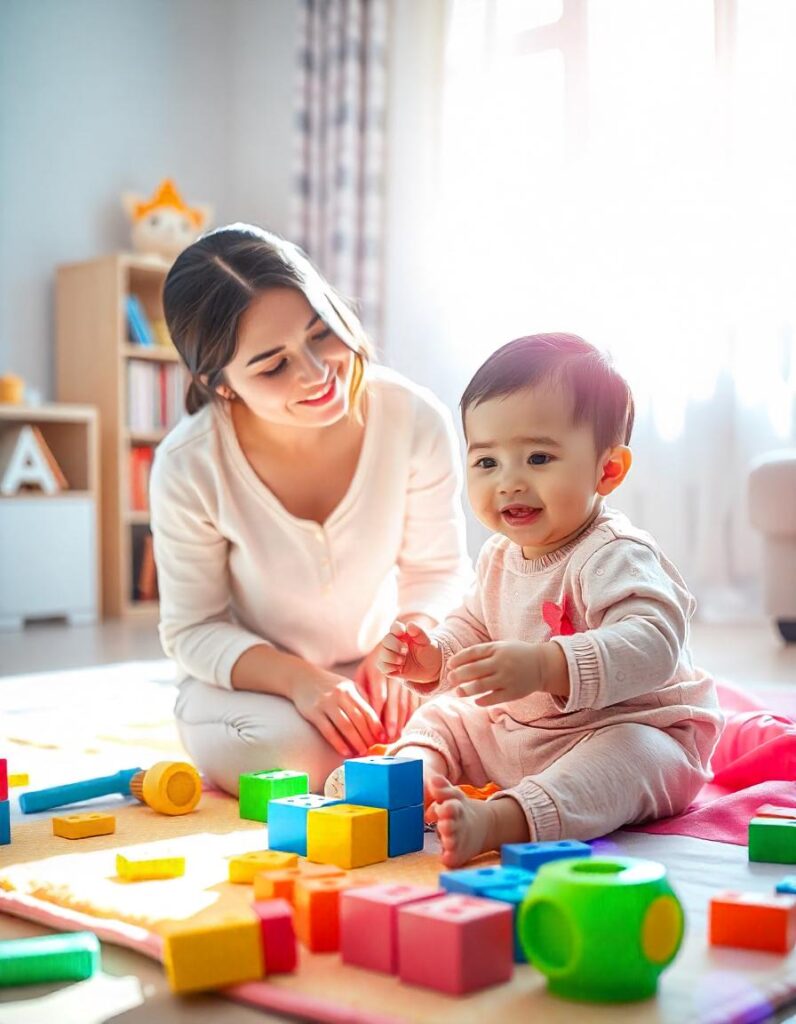
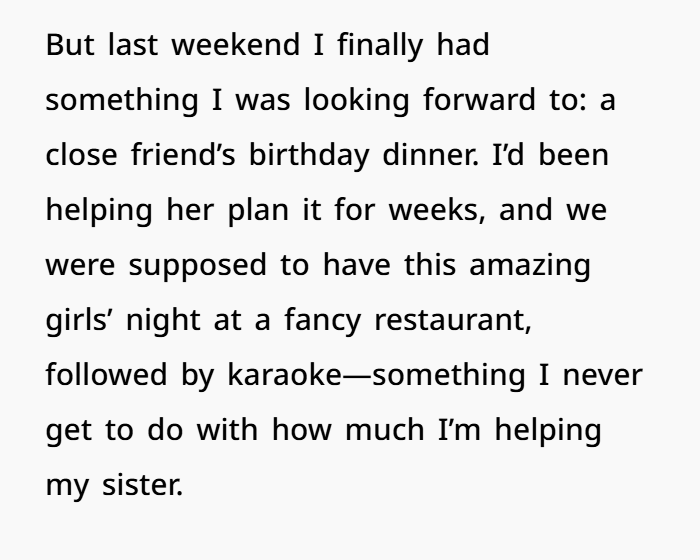
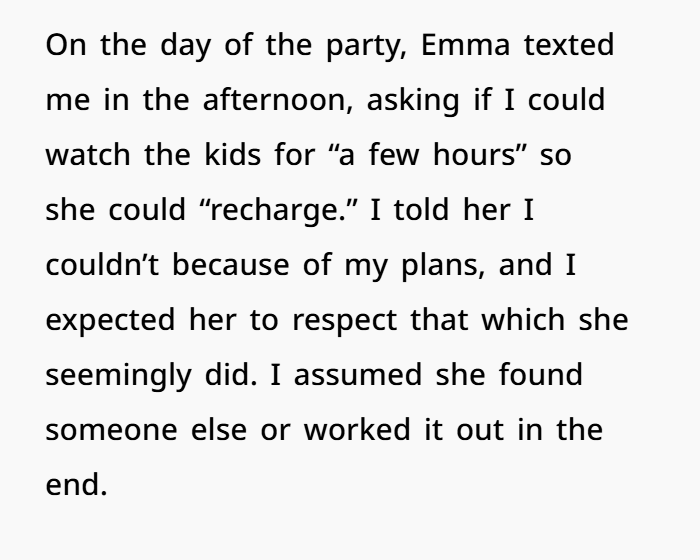

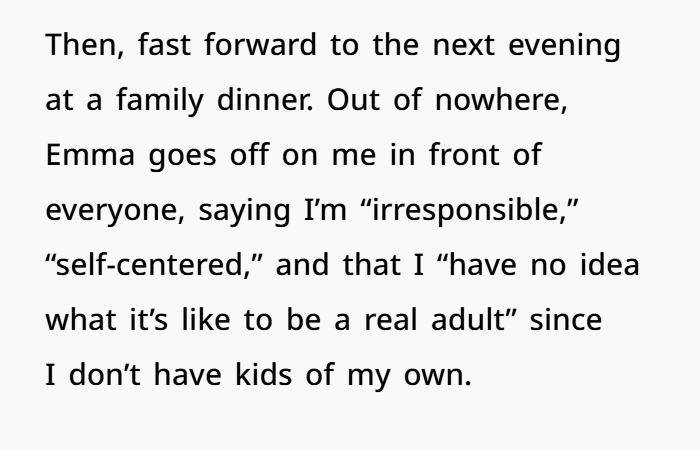

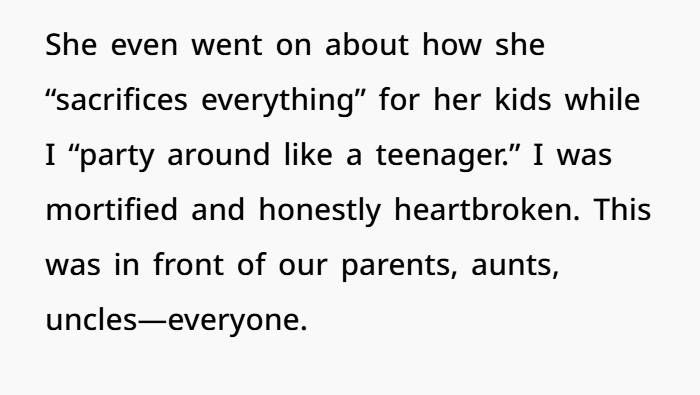
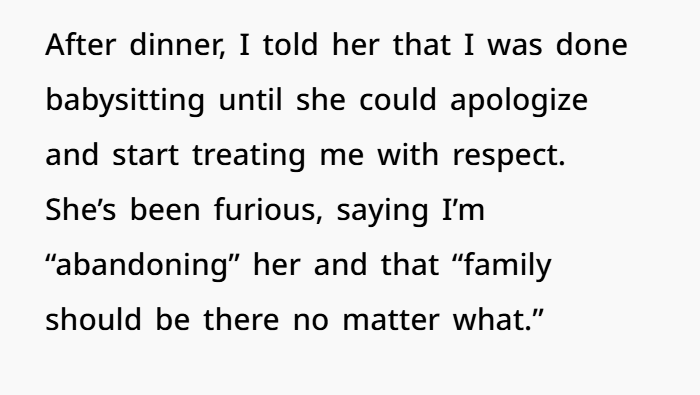
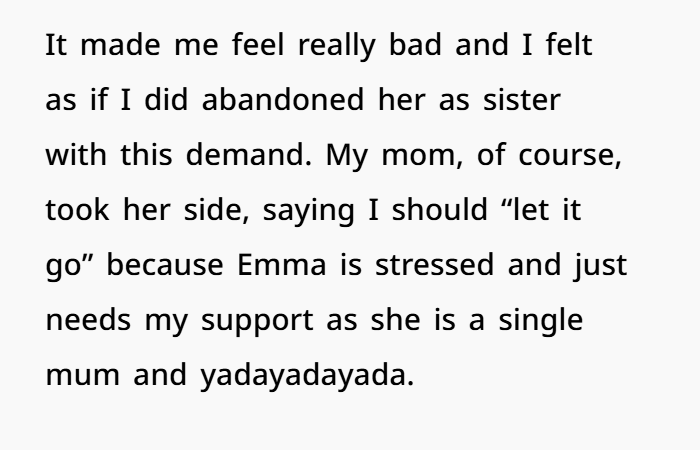



This situation is a classic example of emotional labor and familial obligation, particularly when one sibling is seen as the “free” or “available” one. Research on family dynamics suggests that in single-parent households, close relatives (especially younger, child-free women) often become “default” caregivers, even when it isn’t explicitly agreed upon. While it’s natural to want to support family, there’s a fine line between helping out and being taken advantage of.
Emma’s behavior highlights parentification, a term used in psychology to describe when a child (or in this case, a sibling) is expected to take on responsibilities typically reserved for an adult or parent. While OP is not a child, she is clearly being assigned a secondary parental role, despite never consenting to it. This expectation can cause resentment and burnout, as OP is constantly asked to prioritize Emma’s needs over her own life.
Why Emma’s Reaction Was Unfair
- Shaming in Front of Family
Instead of having a private conversation, Emma publicly humiliated OP. This wasn’t just a disagreement—it was an attempt to guilt-trip and control OP through social pressure. Studies on family conflict indicate that public shaming can be a manipulative tactic, as it forces the accused to either submit or risk being viewed negatively by the family. - Disregarding OP’s Right to Have a Life
Emma’s claim that OP is “irresponsible” for prioritizing her own plans is a flawed argument. Being child-free doesn’t mean someone lacks responsibilities—it just means their responsibilities are different. OP is allowed to have a social life, career, and personal time without it being labeled as “selfish.” - The Entitlement to Free Childcare
The expectation that OP should always be available for babysitting, without appreciation or mutual agreement, crosses a boundary. Just because family members can help doesn’t mean they are obligated to. Emma choosing to have children does not automatically make OP a co-parent.
Here were the top rated comments from readers in response to the OP’s post:







No, OP is not the AH. Boundaries are not breaking away – they are self-respect.
OP has done everything to make Emma happy, even at the cost of OP’s plans.
Instead of thanking him and negotiating a compromise, Emma went on to shame and guilt him publicly.
OP should rightfully expect an apology and the decency to be respected, not selfish.
If Emma really needs backup, she can look into other babysitting options, community programs, private paid sitters, or parent-organized babysitting exchanges. OP isn’t leaving her, she simply doesn’t want to be a free to you, unpaid therapist.
It is super important for OP to enforce this boundary for her own mental and emotional health. Family has to be there for you—not at the expense of somebody losing their independence.

